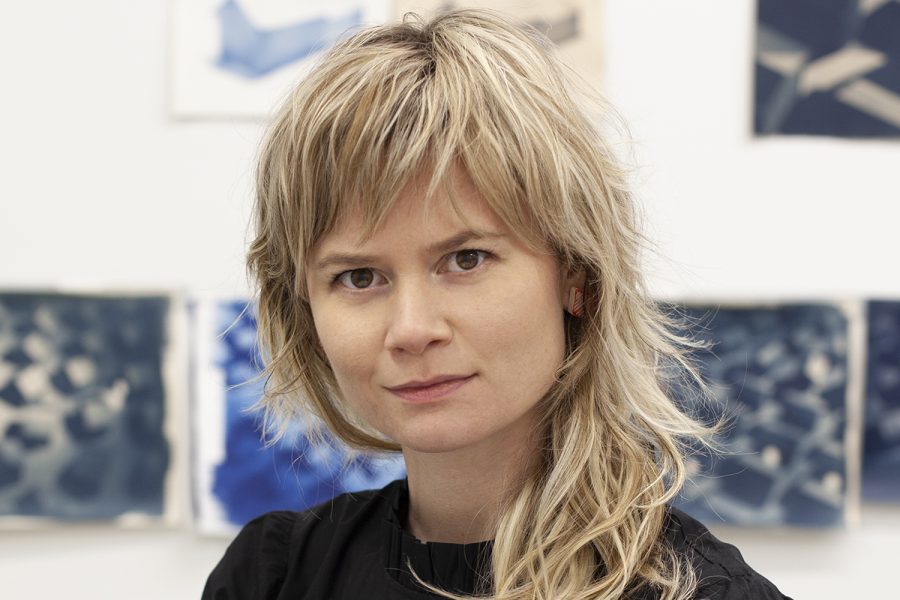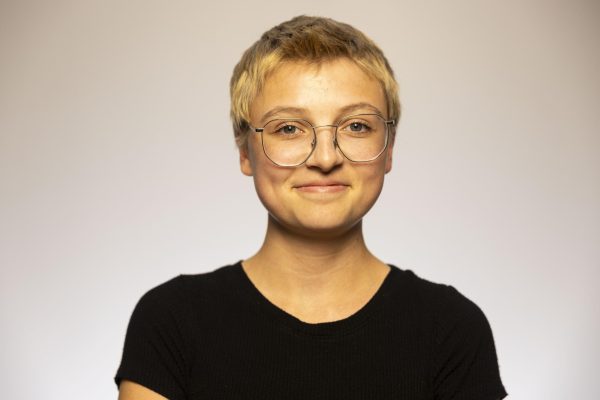UI photography professor selected as finalist for Hopper Prize
Cox’s photography portfolio captures the eerie ambience of funeral homes. Though she didn’t win a monetary award, Cox said the exposure her work gained was enough.
March 8, 2021
For her 13th birthday, Rachel Cox received a simple but important gift — a Polaroid camera. Immediately, she was hooked. Pursuing a lifelong passion for photography ever since, Cox said her art has allowed her to connect people in ways she didn’t expect.
Cox is an assistant professor and program head of photography at the University of Iowa. This February, her ongoing project “Mors Scena,” which she has been working on since 2018, was selected as a finalist for The Hopper Prize.
The Hopper Prize offers a series of grants to contemporary emerging and mid-career artists on a biannual basis, totaling over $22,000. Though she didn’t win a monetary award, Cox said the exposure her work gained from being a finalist was a great honor in and of itself.
“The social-media features and things like that go to other creators and other professionals in the field,” Cox said. “Your work also gets viewed by a lot of people that maybe wouldn’t normally have the access to see it.”
The piece’s title, “Mors Scena,” directly translates to a “stage of death,” in Latin, though “Mors” is also defined as the personification of death. Aptly named, the portfolio focuses on the scenery and ambiance of funeral homes, and seeks to define why many funeral homes feature outdated interior designs.
The portfolio was featured at the Des Moines Art Center last December and taken down in January. Because of the project’s ongoing nature, Cox is unsure herself when it will be completed.
Using a combination of real funeral home spaces and artificial scenes with photo editing to create “Mors Scena,” the photographer used objects like curtains, light fixtures, and temporary furniture to properly encompass the intense and eerie feelings she wanted her work to emit.
On a deeper level, Cox said the images are intended to embody the emotions one can feel when visiting such a space while experiencing loss and processing grief. Cox also touched on the ubiquity of these experiences, and how many people have found comfort in her work after viewing it.
RELATED: Old Faculty Art Studios to be demolished in the spring
“The uncanniness of [funeral homes] is sort of a universally shared sentiment,” Cox said. “People shared their personal experiences of having lost someone and gone to the funeral home and found it to be a very strange and awkward space.”
The photographer had to reevaluate her entire project after the pandemic began about a year ago, only furthering the universality of her work through the additional traumatic losses the world continues to experience. Although she didn’t originally intend for “Mors Scena” to be relatable in this exact way, Cox has embraced the idea that her work can serve to connect others through shared experiences and seeks to employ that idea in future endeavors.
“That connection was important to hear — that someone, strangers who I don’t know — saw these images and felt comforted in the fact that other people were feeling the same thing or experiencing the same thing,” Cox said. “It’s not just them.”















